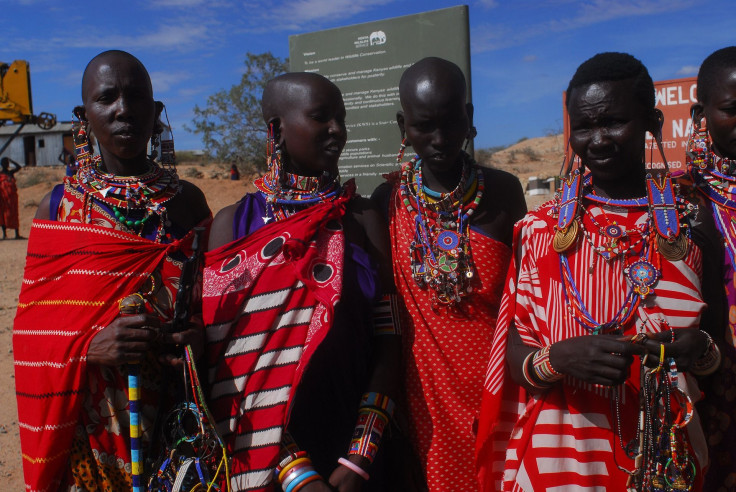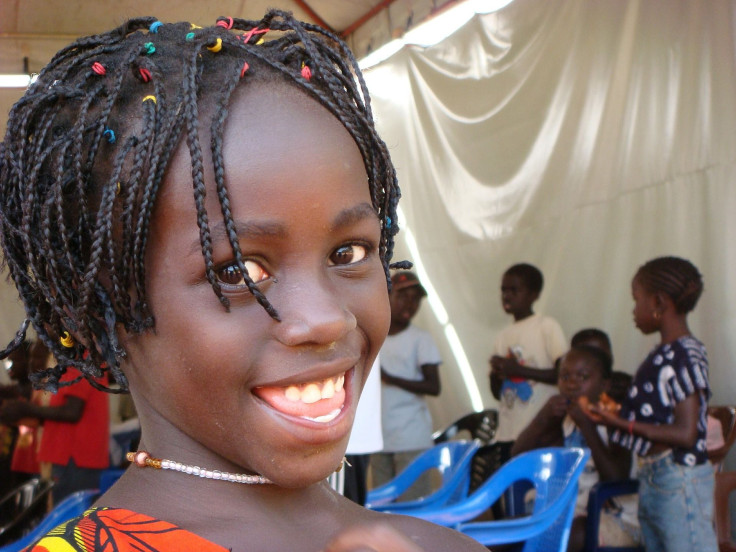Kenya's Illegal 'Circumcision Season' Begins, Girls Flee Homes Out Of Fear
KEY POINTS
- Kenya is home to 4 million girls and women who have experienced FGM
- Female genital mutilation (FGM) is banned in Kenya, but it's still widely practiced
- Long-term risks of FGM include childbirth complications, mental health issues and death from serious infections
The cultural debate over female circumcision among Kenyan tribes has gathered steam after a disturbing video showing thousands of girls being ceremoniously paraded after their genital mutilation ceremonies hit the Internet last week.
In the shocking video footage from Kenya’s Migori County, thousands of young girls are seen parading the streets, some covered in blankets and the others with balloons attached, all guarded by men wielding machetes.
Although Kenya banned forced genital mutilation (FGM) by law in 2011, it is still openly performed and celebrated as a tradition in many communities as a rite of passage. Despite the efforts from anti-FGM NGOs, police and international communities, blatant violation of the law continues in many places.

Female genital mutilation, also known as female genital cutting and female circumcision, is the ritual cutting or removal of some or all of the external female genitalia.
“The cut began the last week of September. We thought it would have finished by Saturday; so that has not been the case. Things have been really bad and we hope that this week will be the final week,” said Natalie Robi Tingo, founder of Msichana Empowerment Kuria, an NGO, to Daily Mail.
The NGO is due to meet with the Kenyan Ministry of Gender to address their concerns.
A week ago, around 80 school girls hesitated to go back to school and fled their homes out of fear as the circumcision season began in Migori, Kuria West sub-county. The girls sought refuge at Taranganya Girls' Secondary school, which in turn disrupted the activities there. They were later relocated to rescue camps as the schools partially reopened. The rescued children included 20 girls of Standard Eight and 6 girls in Grade Four, a Daily Nation report said.
"I am worried that my parents no longer want to associate with me if I do not accept to take the cut. I am preparing to sit at the Kenya Certificate of Primary Education (KCPE) exam but if I go home, I will be subjected to circumcision," one of the girls told the outlet.
Raising concerns about the rescued girls, Kuria West Children's officer Mr John Omondi said, “The girls will risk missing school out of fear of “cutting” and they would be disowned from parents if they do not undergo the traditional ritual.
"The main challenge now is incorporating the children back to the society, especially during this FGM period. Unless there is an intervention to pacify the children with their parents, they may end up undergoing the cut," John told Daily Nation.
WHO assures that FGM has no health benefits, and warns that the girls undergoing FGM can face short-term risks such as bleeding, infections, cysts and problems while urination. The long-term risks include menstrual problems, childbirth complications, mental health issues and death from serious infections.
According to the UNICEF, Kenya is home to 4 million girls and women who have experienced FGM. Overall, 21 percent of girls and women aged 15 to 49 years have undergone the practice. Meanwhile, the UN reports that around 4.1 million girls around the world are at the risk of FGM.

© Copyright IBTimes 2024. All rights reserved.





















